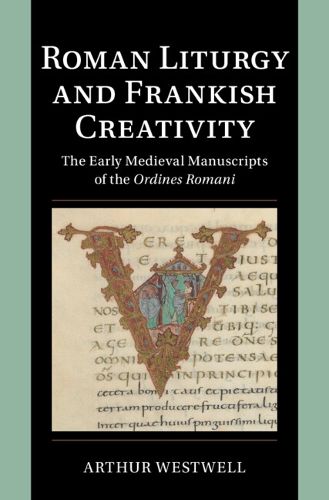Readings Newsletter
Become a Readings Member to make your shopping experience even easier.
Sign in or sign up for free!
You’re not far away from qualifying for FREE standard shipping within Australia
You’ve qualified for FREE standard shipping within Australia
The cart is loading…






This incisive, in-depth study unearths the significance of a neglected group of early medieval manuscripts, those which transmit the Ordines Romani. These texts present detailed scripts for Christian ceremonies that narrate the gestures, motions, actions and settings of ritual performance, with particular orientation to the Roman church. While they are usually understood as liturgical, and thus lacking any particular creative flair, Arthur Westwell here foregrounds their manuscript permutations in order to reveal their extraordinary dynamism. He reflects on how the Carolingian Church undertook to improve liturgical practice and understanding, questioning the accepted idea of a "reform" aimed at uniformity led by the monarch. Through these manuscripts, Westwell reveals a diversity of motivations in the recording of Roman liturgy and demonstrates the remarkable sophistication of Carolingian manuscript compilers.
$9.00 standard shipping within Australia
FREE standard shipping within Australia for orders over $100.00
Express & International shipping calculated at checkout
This incisive, in-depth study unearths the significance of a neglected group of early medieval manuscripts, those which transmit the Ordines Romani. These texts present detailed scripts for Christian ceremonies that narrate the gestures, motions, actions and settings of ritual performance, with particular orientation to the Roman church. While they are usually understood as liturgical, and thus lacking any particular creative flair, Arthur Westwell here foregrounds their manuscript permutations in order to reveal their extraordinary dynamism. He reflects on how the Carolingian Church undertook to improve liturgical practice and understanding, questioning the accepted idea of a "reform" aimed at uniformity led by the monarch. Through these manuscripts, Westwell reveals a diversity of motivations in the recording of Roman liturgy and demonstrates the remarkable sophistication of Carolingian manuscript compilers.